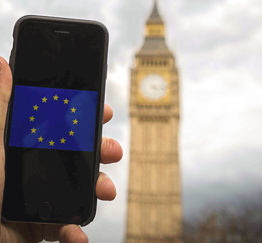The roller coaster ride of the Bitcoin market might be too much for some, but for a diehard group of investors looking to make a quick financial windfall, it is an opportunity not to be passed up lightly.
However, the wild swings in pricing and market valuation has caught the attention of U.S. regulators, among them the Office of Foreign Assets Control (OFAC).
Bitcoin, comes under a number of different monikers including cryptocurrency and virtual currency, and it can be used to purchase goods and services from many thousands of online merchants all over the world. Ethereum, Bitcoin Cash, Ripple and Litecoin are just a few of the other much-talked about digital currencies in the market.
There is much to talk about the legitimacy of this form of trading, especially the point that transactions between two parties occur over secure, encrypted channels, and that these transactions are recorded in a ledger that is open to the public.
But the challenge to regulators is that because no personally identifiable information (PIIs) can be gleaned from these transaction, there would be great difficulty in stemming the flow of illicit funds.[1]
Expect Increased Regulatory Oversight
Recently, the Treasury Department (of which OFAC is part) signaled that they are in discussions with financial regulators around the world on what next steps to take in regulating the Bitcoin market to allow only legal activities.[2]
Currently, a handful of regulators have eyes on this market including the FinCEN (also known as the Financial Crimes Enforcement Network), the Internal Revenue Service, the Securities and Exchange Commission (SEC) and the Commodities Futures Trading Commission.
As 2018 unfolds, it is more than likely that there will be a promulgation of new legislation to push back on underworld activities.
Onus Remains on Continuous Compliant
With all this in mind, if you are going to conduct transactions using a cryptocurrency like Bitcoin, it’s more important than ever to be sure that you know who your customers are before you finalize a transaction.
But in the meantime, the official line is that if you are not sure what you are investing in, then the safest bet to place is not to play. And if you are not sure who you are transacting with all the red flag rules from the Bureau of Industry and Security (BIS) still apply.
[1] Banking Bitcoin-Related Businesses: A Primer for Managing BSA/AML Risks, Working Paper, Federal Reserve Bank of Atlanta. https://www.frbatlanta.org/-/media/documents/rprf/rprf_pubs/2016/banking-bitcoin-related-businesses.pdf, Accessed January 3, 2018
[2] We’re Looking ‘Very Carefully’ at Bitcoin: U.S. Treasury Sec. Mnuchin, CNN.com. https://www.ccn.com/were-looking-very-carefully-at-bitcoin-u-s-treasury-sec-mnuchin/. Accessed January 3, 3018.





